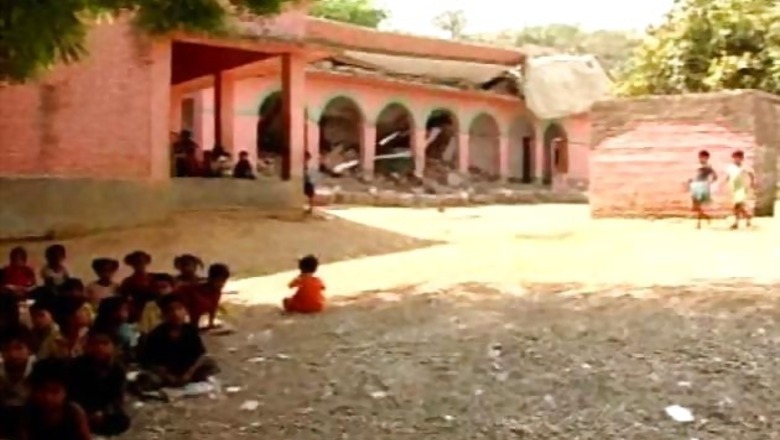
views
In the absence of funds to maintain toilets and other facilities, teachers of a government-aided school in Sundarbans and local activists have roped in the services of a group of students to maintain hygiene of the campus.
The teachers of Durbachati Milan Vidyapith and local activists teach students how to do the cleaning part themselves and even raise funds for the purpose. Before, after or during school hours, whenever the children, including girls, find time, they volunteer for the job. Out of the 1,400 students of the government-aided school in Patharpratima block, a small group of 40 students is part of the WATSAN (water and sanitation) committee which looks after the hygiene in the campus.
"Initially, we were a little hesitant on taking up the job of cleaning, but gradually when we saw even our teachers doing it, we picked it up and made it a habit," Class X student Sukalyan Sen told the visiting correspondent. With the guidance of an international NGO , the headmaster, Jyotirmoy Jana, led the initiative of motivating the students who are also collecting funds to buy cleaning equipment like broom, toilets cleaners, etc.
15-year-old Sinchal Nayak goes around classrooms and even the village collecting money which will fund the initiative. They are even opening a bank account for the purpose. "We are adopting a participatory approach to solving the problem. We told the students that this is their school and since we don't get money for such expenses they should take up this job. We gave them training for some time and now they are able to maintain it on their own," Jana says.
According to estimates by the UNICEF, in rural India only 21 per cent use improved sanitation facilities making them vulnerable to a host of diseases including diarrhoea and respiratory infections. With the help of the Sundarban Social Development Centre, the authorities also constructed a small plant for treating pond water last year.
The water from the perennial pond is treated with a six-stage filtration process which makes it fit for drinking purposes by the children and school staff. "The young boys clean the pond area so that the water remains clean as far as possible. They are also being taught on how to run the treatment plant. In future they would be doing all the maintenance and management works," says the headmaster. The only drinking water available in this school so far was drawn from hand pumps, the water of which was not only high in iron content, but also saline.
Health problems related to hygiene and safe drinking water were once regularly reported by the students. "Now it is changing. Our environment is safer. This has also made my students more independent than what traditional schooling can do," the headmaster says with a proud smile on his face.















Comments
0 comment